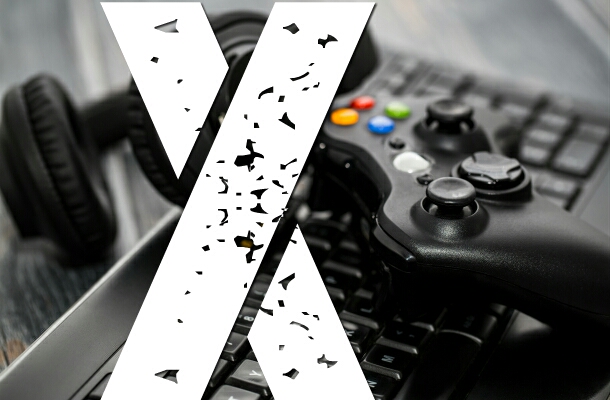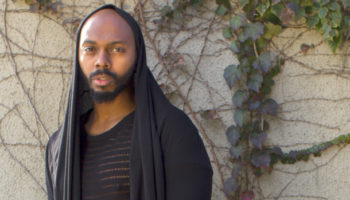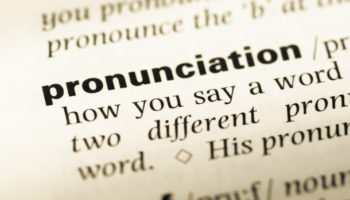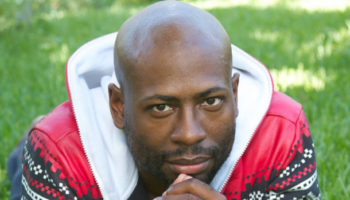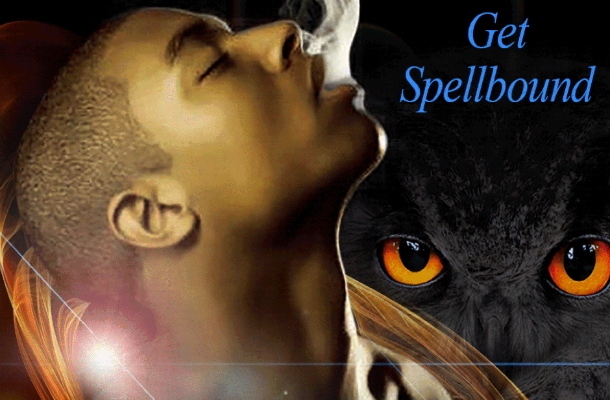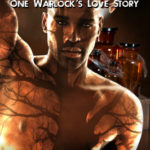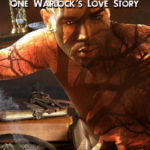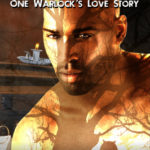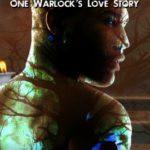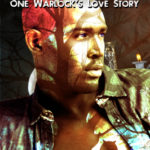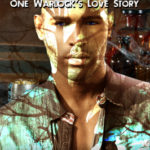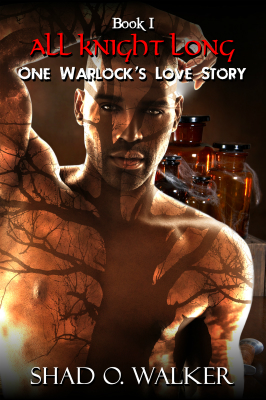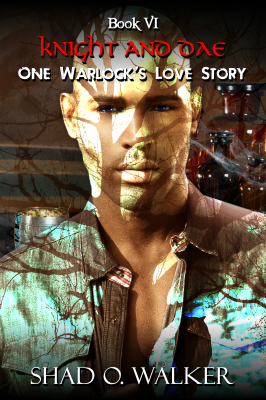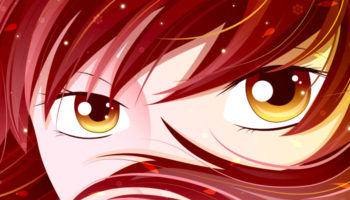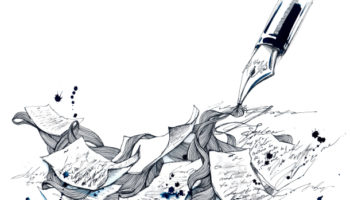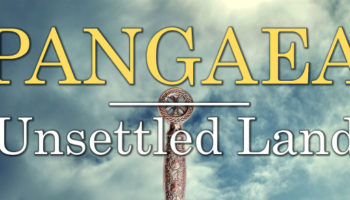When I look back on my experience as a Black gay kid, I think of my love of video games as fated. I was always the “different” one, but it wasn’t until I started middle school that I began to realize this. I transferred from a city school to a small, private Catholic school in the suburbs in fourth grade. Out of the 60 kids that made up my grade, I was only one of three Black kids. My entry was pleasant enough. A teacher had the entire grade greet me with handmade cards to make me feel welcome. I did, and I continued to be my outgoing, bubbly self. That all changed when we were tasked with a certain group project.
This is an article I wrote for The Tenth Magazine’s fourth volume titled, ‘The Technology Issue’. It serves as an introduction to the interviews that are printed afterward, but my feelings about Black / gay culture and its relation to the gaming industry are pretty strong. So I wanted to share it with those of you who may not be familiar with the magazine.
We were reading Jumanji in class and had to split up into groups to create our very own board game. I got teamed up in a group of four with Larry who was already going through the ostracization that I would soon face. I didn’t know why the other kids didn’t like him, but I’ve never been one to blindly follow the pack, so I didn’t mind working with him on the project. Apparently, simply treating him like a human being was enough to kickstart the process of my own isolation. I soon faced angry retorts to normal conversation and nasty glares to how I sometimes responded to topics in class. I had an apple thrown in my face without provocation and was forcefully told to “just wait” by a classmate who had taken my assigned seat and proceeded to chit-chat to another. I even remember being taunted and called gay for a couple of weeks—years before I realized it was actually true. It wasn’t only those instances that changed my life’s trajectory, but also what I experienced at home.
I couldn’t handle my father’s parenting style. I suppose he wanted my brother and I to be smart and tough, but for me, it did more harm than good. Almost constantly by the time my brother and I woke up to the time we went back to sleep, he would holler, fuss, and criticize us. My brother seemed to take this more easily, but I, of course, was different. I remember a recurring theme coming out of my dad’s mouth, “What is wrong with you?” and I took it to heart. It was hard not to when your own father and seemingly all the kids at school had something negative to say day in and day out. There must have been something wrong with me. On top of that, my inability to fix it was enough for me to retreat further and further until all I spoke at times were soft whispers. If I couldn’t be me and be successful, what other choice did I have? Video games were my answer.
When you play a video game, you step into the shoes of a character in a world built for them to win. Yes, for me there were challenges, but the sense of achievement I got when getting past a level or defeating a hard boss felt far better than the nastiness of the real world. And it comes much faster and regularly than in the real world, too. In fact, no type of game gives you an immediate, repeated sense of achievement than in fighting games. I used to to be really big on Street Fighter and Virtua Fighter. Every time the game announced “Winner,” I got a rush of positivity and appreciation that was sorely lacking elsewhere. Those are the moments I craved. Those are the moments that validated my existence as opposed to questioned it. Those are the moments when I did something right.
But then I noticed something that changed my whole perspective. Despite these games’ huge casts of playable characters, there weren’t a whole lot of characters that looked like me. And if they did, they didn’t act like me. For a time, Street Fighter featured only one token African-American character, Balrog, while Virtua Fighter had only Jeffrey, who was an Australian Aboriginal. Both were big, burly, aggressive types. So while they had a similar skin tone, neither was treated with the seriousness of the other characters, nor did they resonate with who I was. It was because of this type of treatment, in these games and in others, that I began to feel the slow erosion of my cocoon. And by the time I came out to my family at seventeen years old, I understood that games were just another place where people like me were not appreciated. It was at that time that I discovered I could bypass that feeling by playing games where you could create your own character.
When games where you could customize the look of your character began to be released, I nearly lost the ability to complain about representation. Games like Mass Effect or The Elder Scrolls allowed you to customize the look of your virtual avatar and play the game as a super-powered version of yourself. Finally, there were games that were accepting of whoever I was and whatever I wanted to be. But, actually, this wasn’t the case. The only way you could be Black in The Elder Scrolls was by picking a specific “race” of people (in this case it was elves, lizard people, humans, etc.) called Redguards—the game’s version of Black people. I had no problem with this, except I wanted to be a strong magic user, and the Redguards were weak on magic. So I had to pick an elf character and darken him as much as possible (which wasn’t much) to play the game the way I wanted. In Mass Effect, color wasn’t so much an issue as was sexuality. In the first installment, there was the ability to have a same-sex romantic storyline with another character. The catch: you could only do this if your character was a woman. So in order for me to enjoy a romance storyline with another man, I created a straight black woman. While I enjoyed seeing a different type of character, both instances stung. They only reinforced the belief that I was not really a valued part of any world I inhabited, virtual or otherwise. And if that wasn’t enough, online gaming drove that idea home.
Online gaming was new and ripe with possibilities of connecting with like-minded people and building a community that accepted you. It wasn’t long, however, before I saw that these communities didn’t fully accept me either. As a college student, I was very isolated. I had found a way to survive and that was by myself. My M.O. was to get through classes and go plug into a game; that way, I limited the hurt anyone could cause. I remember enthusiastically getting home every day to go play World of Warcraft, an online game where you team up with other players to defeat enemies and tackle tough quests. This was yet another game where you could create the look of your character and, when I started playing, I felt I had struck gold. I was able to create a black man who was a strong magician, and since romance was not a part of the game, my sexuality never had to be addressed. With the exception of giving the ugly Trolls a Jamaican accent, I had no issue with this game in particular. It was the online interaction through this game and in others that caused problems. I remember one interaction where another player looked at my avatar and asked, “Is your character Black?” I responded, “Yeah,” to which he then asked, “Why?” He couldn’t fathom that the person sitting at his computer may have been Black and wanted his character to represent him. It’s this ignorance that pervades the online gaming community. The harassment one gets as a Black queer person online is insane—especially when competing against other gamers. Shooting games like Halo or Call of Duty and even fighting games like Dead or Alive (my favorite), would many times end with a great feeling about a win, and then I’d get knocked down by being called a nigger or a faggot. This would happen even if they couldn’t verify that I was either one. I even felt it from other Black gamers who would listen to my voice and say, “You can’t possibly be Black.” My search for a space where I could completely let down my guard and just have fun was getting more and more bleak. Nothing showed me the reality of how people really thought about these issues than my use of the precursor to social media: online message boards.
When you’re in college, a lot of deep issues about society are openly discussed, and I certainly made my concerns heard online. Whenever an issue in minority representation in gaming came up, I would talk about it in forums. Unfortunately, there was always a backlash from people who didn’t want to hear how the games they loved were in many ways rather damaging. The response, “If you don’t like it, don’t play the game,” was commonly echoed amongst other more insensitive remarks. This type of back and forth online is what’s called a “flame war”. You’re familiar with it if you read any comment sections on racially-charged blog posts and YouTube videos. While I thought the gamer (and even gay gamer) community would be receptive to constructive discussion about the media we loved, I was getting flamed for speaking my truth and calling for change. This same behavior is what sparked the whole Gamergate controversy, where female video-game professionals received threats of assault, rape, and murder. It seems the more one speaks out, the more we get this toxic response from the communities we call home. Yet, I know that if I ever want to be able to play a game without thinking twice about stereotypes or lack of inclusion, I must still speak up. We must all persist.
Whenever anyone speaks up about the faults they see in a game or any other form of entertainment, it’s because they see its potential and want it to be better. We want inclusive casts—both racially and in terms of gender and sexual orientation. Yet, when we take our arguments to the big developers, their response is that it’s too risky. So what do we do now?
In the following pages, you’ll be introduced to four people with a close connection to video games and technology, who talk about their experiences and discuss solutions to make the virtual world one that’s welcoming to all people. You’ll meet Tanya Depass, founder and editor-in-chief of the Fresh Out Of Tokens podcast, who discusses the birth of the #INeedDiverseGames movement and what gaming studios need to do to avoid resorting to harmful stereotypes. You’ll enjoy a conversation with DJ Kirkland, comic book artist and illustrator, who ponders the possibilities of gay storylines as well as what makes many of us pick female characters when we play. You’ll take a turn for the techy side with Dr. Kortney Ryan Ziegler; a man of many accomplishments including being a filmmaker, the founder of Trans*H4CK, and a co-founder of BlackStarMedia. He brings a focus to trans visibility and what it means to be a person of color in today’s tech industry. And finally, you’ll get enlightened by Wynton Smith, retired Super Smash Bros. commentator and current co-host of the Melee It On Me podcast. If you’re not a gamer, you may be surprised about the reality of the demographics of LGBTQ people of color in the competitive gaming scene. He also dishes about the more prominent players in the tournament community. Hopefully, with these ideas on the table, we can begin to move this multi-billion dollar industry into a direction of real inclusion. And I say “we” because it’s going to take efforts by all of us to make a difference.
As much as I’d like to, I know I can’t change the gaming industry all by myself. And after experiencing such negativity in both my real life and my virtual one, I had to take a step back from my feelings about society and focus on the only space that could ever truly have all of my best interests at heart. Me.
At age 21, everything hit a head. And while games were not the root cause, they weren’t the help they were supposed to be. My self-esteem was completely broken and I began to question why I was even dealing with life when I could simply close my eyes and no longer feel the hurt. As a last resort, I began to see a therapist once a week to talk through my issues, and it was exactly the help I needed. I was able to forgive my old classmates, restore a fantastic relationship with my father, and begin the process of loving myself for who I was regardless of others’ opinions. I still play video games, but they are no longer my primary relationship. The most important relationship I have is with myself. And it shall remain that way even after we get to that place where entertainment is a reflection of all of us.
To read more fascinating, insightful, and funny articles about gaming, technology and its use in the Black LGBTQ community, purchase your copy of this issue now.
Follow The Tenth Magazine on Instagram and other social media outlets.
*Article reposted with permission.


